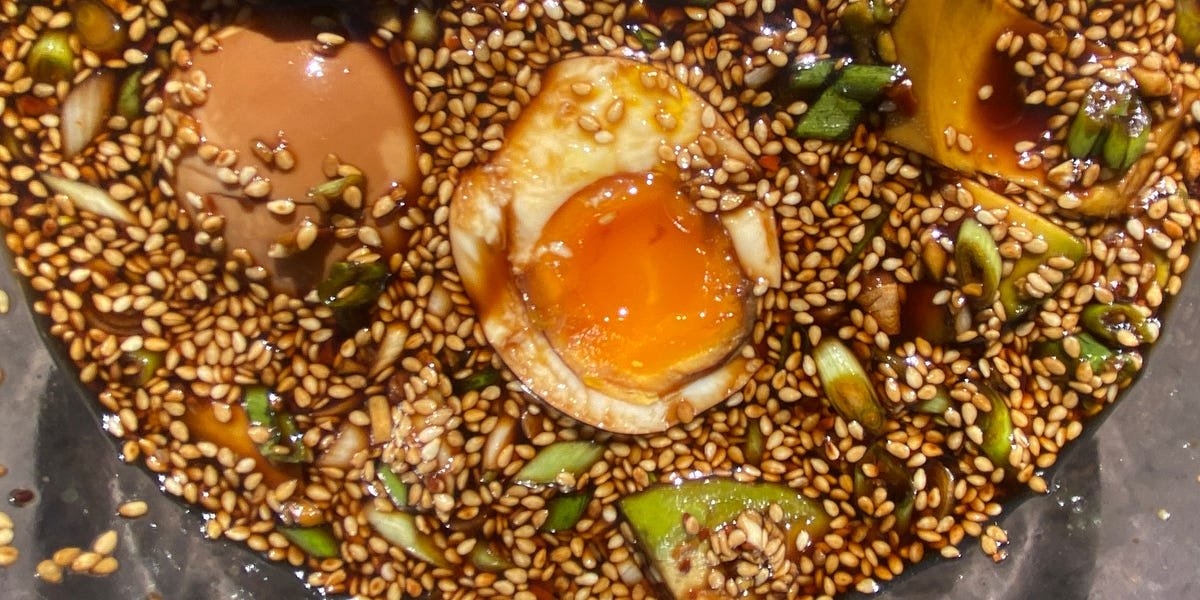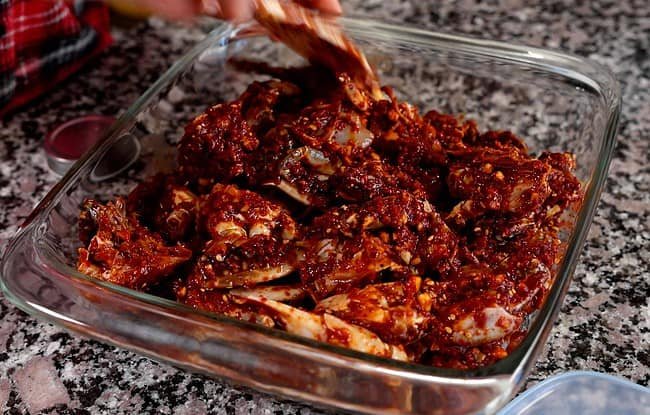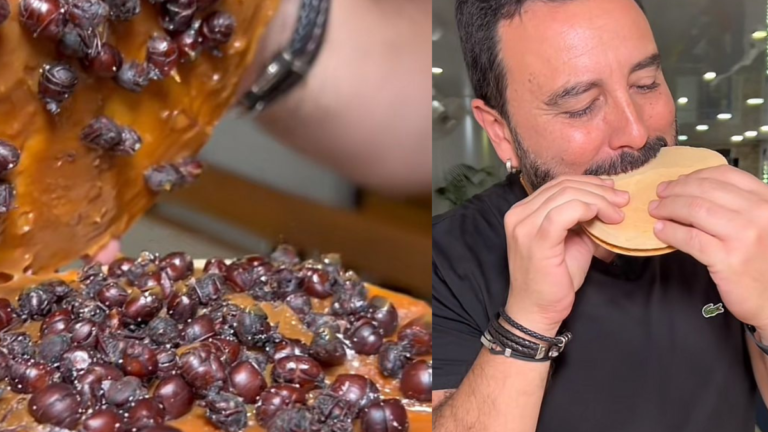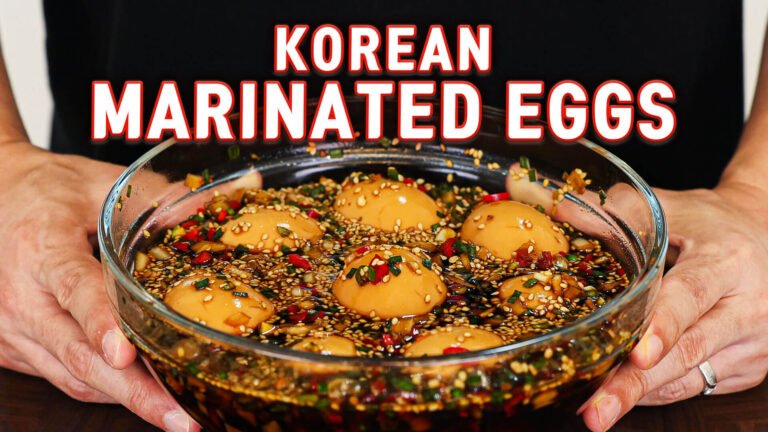Soy Marinated Eggs: A Perfect Savory Treat
What Are Soy Marinated Eggs?
Soy marinated eggs, also known as shoyu tamago in Japanese cuisine, are soft or hard-boiled eggs that have been peeled and marinated in a flavorful mixture predominantly featuring soy sauce. This culinary delight transforms ordinary eggs into umami-rich morsels that have become increasingly popular worldwide, both as a standalone snack and as a topping for various Asian dishes.
The History and Cultural Significance
The tradition of marinating eggs in soy sauce originated in East Asia, particularly in Japan and China. In Japanese cuisine, soy marinated eggs are often served as a classic ramen topping, while Chinese cuisine features similar preparations in dishes like tea eggs. These eggs represent the ingenious ways different cultures have developed to preserve food while enhancing its flavor.
Why You Should Try Making Soy Marinated Eggs
- Flavor Enhancement: The marination process infuses the eggs with a complex umami flavor that plain boiled eggs simply can’t match
- Versatility: These eggs can be used in multiple dishes or enjoyed on their own as a protein-rich snack
- Cost-Effective: Making soy marinated eggs at home is significantly cheaper than buying them from restaurants
- Meal Prep Friendly: They can be prepared in advance and stored for several days, making them perfect for busy schedules
Essential Ingredients for Perfect Soy Marinated Eggs
Base Ingredients
- Fresh eggs
- Soy sauce
- Water
- Sugar
- Mirin (sweet rice wine)
Optional Flavor Enhancers
- Garlic cloves
- Ginger
- Green onions
- Rice vinegar
- Sake
Step-by-Step Preparation Guide
1. Boiling the Eggs
The foundation of perfect soy marinated eggs lies in properly boiled eggs. Achieve the ideal texture by following these steps:
- Bring water to a rolling boil
- Gently lower room-temperature eggs into the water
- For soft-boiled eggs, cook for 6-6.5 minutes
- For medium-boiled eggs, cook for 7-7.5 minutes
- For hard-boiled eggs, cook for 8-9 minutes
2. Ice Bath Treatment
Immediately transfer the eggs to an ice bath to stop the cooking process. This step is crucial for achieving the desired texture and making the eggs easier to peel.
3. Preparing the Marinade
For the perfect soy marinated egg marinade, combine:
- 1 cup soy sauce
- 1 cup water
- 2 tablespoons sugar
- 2 tablespoons mirin
Looking for more amazing Asian recipes? Visit 10for10 for our complete collection of authentic Asian dishes and cooking tips.
4. The Marination Process
After peeling the eggs carefully, submerge them in the prepared marinade. The marination time can vary based on personal preference:
- 2-4 hours for a lighter flavor
- 6-8 hours for medium intensity
- 12-24 hours for strong flavor
Storage and Shelf Life
Proper storage is essential for maintaining the quality of your soy marinated eggs:
- Store in an airtight container in the refrigerator
- Keep eggs submerged in marinade
- Consume within 3-4 days for best results
- Do not freeze marinated eggs
Common Mistakes to Avoid
When preparing soy marinated eggs, watch out for these common pitfalls:
- Over-marinating: This can make the eggs too salty and tough
- Improper peeling: Rough peeling can damage the egg’s surface
- Using old eggs: Fresh eggs are harder to peel and may not absorb flavor as well
- Skipping the ice bath: This can result in overcooked eggs with gray yolks
Serving Suggestions
Soy marinated eggs are versatile and can be enjoyed in numerous ways:
As a Topping
- Ramen
- Rice bowls
- Noodle soups
- Salads
As a Snack
- Sliced in half with a sprinkle of togarashi
- Paired with rice
- Added to bento boxes
- Served with pickled vegetables
Health Benefits
Soy marinated eggs offer several nutritional advantages:
- High-quality protein content
- Essential amino acids
- Vitamins D and B12
- Minerals including iron and selenium
Variations and Regional Differences
Different regions have their own unique takes on soy marinated eggs:
Japanese Style (Ajitsuke Tamago)
- Emphasis on soft-boiled eggs
- Usually served with ramen
- Often includes mirin and sake in the marinade
Chinese Style (Lu Dan)
- Typically hard-boiled
- Often includes five-spice powder
- Sometimes made with tea leaves
Korean Style (Mayak Eggs)
- Usually medium-boiled
- Often includes garlic and green onions
- Sometimes spiced with Korean red pepper
Tips for Perfect Soy Marinated Eggs Every Time
Egg Selection
- Choose eggs that are at least a week old
- Use large eggs for consistent results
- Ensure eggs are at room temperature before boiling
Marinade Balance
- Adjust soy sauce-to-water ratio based on preferred saltiness
- Test marinade before using
- Consider adding aromatics for depth of flavor
Timing Considerations
- Set a timer when boiling eggs
- Mark containers with marination start time
- Check eggs periodically during marination
Troubleshooting Common Issues
Problem: Too Salty
- Dilute marinade with more water
- Reduce marination time
- Rinse eggs briefly before serving
Problem: Rubbery Whites
- Reduce marination time
- Check boiling time
- Ensure proper storage temperature
Problem: Uneven Color
- Rotate eggs during marination
- Ensure full submersion
- Use a container that fits eggs snugly
Creative Uses for Leftover Marinade
Don’t waste the flavorful marinade after using it for eggs:
- Use as a base for stir-fry sauce
- Add to soups for extra flavor
- Marinate other proteins
- Create a dipping sauce
Conclusion
Soy marinated eggs are a testament to the beauty of simple ingredients transformed through careful preparation. Whether you’re adding them to your ramen, enjoying them as a protein-rich snack, or experimenting with different variations, these eggs offer a perfect balance of flavor and convenience. With proper technique and attention to detail, you can create restaurant-quality soy marinated eggs in your own kitchen.
Remember that practice makes perfect, and don’t be afraid to adjust the recipe to suit your taste preferences. The versatility of soy marinated eggs makes them a valuable addition to any cook’s repertoire, whether you’re an experienced chef or just beginning your culinary journey.







